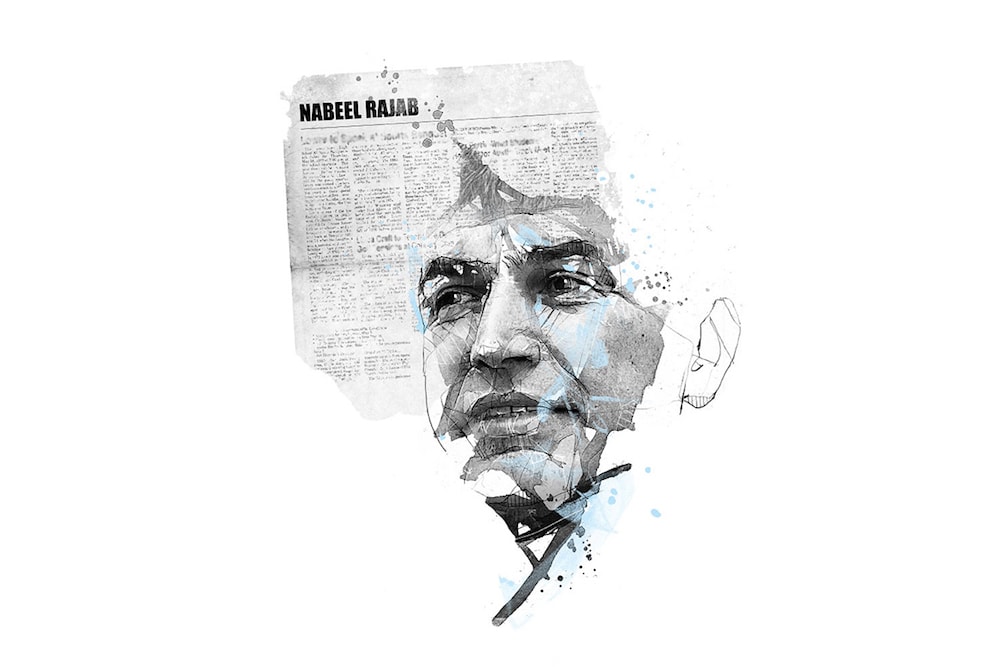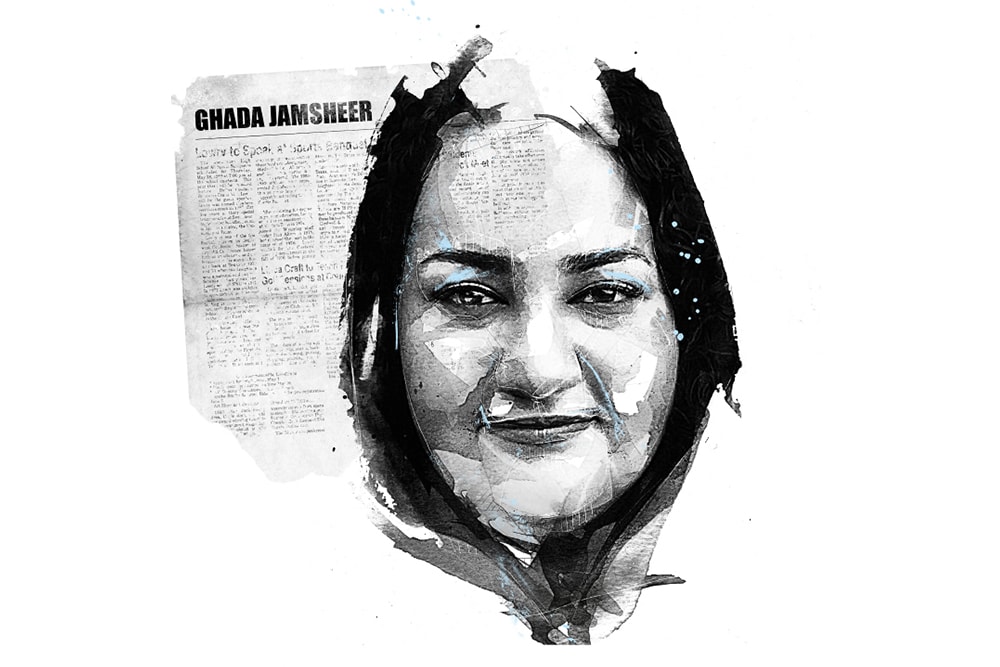Prominent Bahraini human rights advocate Abdulhadi Al-Khawaja spent 12 years in exile advocating for human rights in his homeland. When he returned, he was sentenced to life in prison for inspiring his fellow Bahrainis to do the same.
On 20 April 2012, 72 days into his hunger strike, Abdulhadi al-Khawaja asked his wife to relay the following message to the people of Bahrain. If I die in the next 24 hours, I ask the people to continue on the path of peaceful resistance ... I don't want anybody to be hurt in my name.
While Abdhulhadi Al-Khawaja rose to international prominence during Bahrain’s 2011 uprising, his activism began much earlier.
As a student in London in the 1970s, Al-Khawaja marched in protests against the unlawful arrest of citizens in Bahrain. His participation was costly. Many students, including Al-Khawaja, were denied renewal of their passports. In the summer of 1980, after fellow protesters who returned to Bahrain were detained and interrogated under torture and his family house had been ransacked, Al-Khawaja decided to remain and work from abroad.
In 1991, he was granted political asylum in Denmark, where he established the Bahrain Human Rights Organisation, which gained international recognition for its role in contributing to positive political changes in Bahrain after a new ruler, Hamad ibn Isa Khalifa, took over in 1999.
Al Khawaja returned to Bahrain under a general amnesty in 2001, and founded the Bahrain Center for Human Rights. From 2008 to 2011, he served as the Middle East and North Africa protection coordinator for Front Line Defenders, an organisation founded in 2001 that protects human rights defenders at risk.
Al-Khawaja’s long and distinguished history of activism came to an abrupt standstill on 9 April 2011 when masked men broke into his daughter’s house, attacked him, and dragged him into detention. He was put on trial with 20 other Bahrainis on charges of “managing a terrorist organization” and “attempting to overthrow the government by force”, and on 22 June 2011 he was sentenced to life imprisonment in Bahrain’s notorious Jaw prison – from which alarming reports of torture have emerged.
Since September 2013, when the highest court in Bahrain upheld his life sentence, the only form of protest available to Al-Khawaja has been to go on hunger strike, with his first strike lasting 110 days.
Today, Al Khawaja’s family continue his work. His daughter, Maryam Al-Khawaja, has been the acting president of the Bahrain Centre for Human Rights during Nabeel Rajab’s periods of detention, and speaks frequently to international audiences about human rights in Bahrain. Zainab Al-Khawaja, Maryam’s older sister, has been detained several times since joining the protest movement in 2011.
Meanwhile, the Bahraini authorities are continuing to target Al-Khawaja even in prison. In December of 2017, he wrote to the Ministry of Interior complaining about conditions in prison. According to Maryam, political prisoners were collectively punished “due to things happening outside the prison, or even outside the country”. This included confiscating all books, papers, pens and shutting down the TV.
Since his imprisonment, rights groups have repeatedly called for his release, with numerous protests taking place outside Bahrain in support of the prominent activist. Yet, despite the international solidarity Al Khawaja’s case has received, Bahraini authorities have been unmoved to grant his release.
In March 2020, Bahrain excluded Al Khawaja and other prominent human rights defenders from its list of 1,486 prisoners, including 300 political prisoners, released amidst the Covid-19 pandemic. Al Khawaja has also seen his ability to communicate with family restricted during the pandemic, and prison authorities arbitrarily denying him necessary medical treatment.
Rights groups have underscored the urgency of Al Khawaja’s underlying medical conditions, which have been exacerbated by Bahrain’s unsanitary prisons where prisoners of conscience are routinely denied medical care.
In January 2021, over 100 rights groups signed an open letter to Danish Prime Minister Mette Frederiksen ahead of the tenth anniversary of Al Khawaja’s imprisonment. Calling attention to his need for medical care, the letter called on Denmark to help secure the release of the Bahraini-Danish citizen, and reunite him with his family.
On 5 April 2021, to mark Al Khawaja’s 60th birthday, IFEX joined rights groups around the world in calling on Bahraini authorities to drop his life sentence, and unconditionally release him and other human rights defenders.
On 2 June 2022, Al Khawaja was awarded the Martin Ennals Award for his human rights work. In an audio recording played during a moving ceremony, Al Khawaja paid tribute to his wife, Khadija Al-Mousawi, who attended the event with their daughters, Zaynab and Maryam. He also expressed his hope that the award would help shine a spotlight on other political prisoners, especially those who are less well known.
In September 2022, Al Khawaja and other prisoners of conscience faced reprisals after protesting the Jaw prison administration’s promotion of a number of perpetrators who have tortured prisoners of conscience in the past.
In an effort to silence him, prison authorities repeatedly denied Al Khawaja necessary medical care, and communication with his family. In November 2022, new charges were brought against him for his protests in prison, including insulting a public servant and Bahrain’s normalisation with Israel, as well as breaking a plastic chair after being denied the right to call his daughters. Despite already serving a life sentence, Al Khawaja was subsequently convicted and fined following a trial where he was not present, and was denied legal representation to challenge the case.
Denouncing the sentence, Maryam Al Khawaja called it: “a clear example of how the judicial system in Bahrain is not a dysfunctional system of justice but a highly functioning system of injustice.”
Illustration by Florian Nicole


